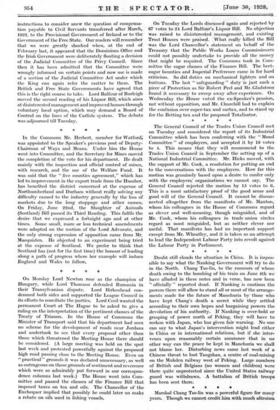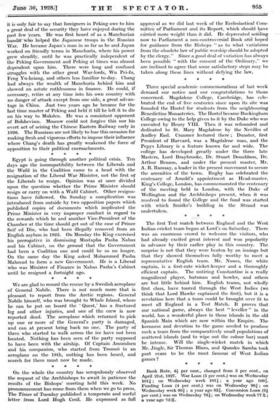Marshal_ Chang Tso-lin was a powerful figure for many years.
Though we cannot credit him with much altruism it is only fair to say that foreigners in Peking owe to him a great deal of the security they 'have enjoyed during the past few 'years. • He was first heard of as a Manchurian bandit- who helped the japanese troops in 'the Russian War. He became Japan's man in so far as he and Japan worked on friendly terms in Manchuria, where his power grew steadily, until he was practically independent of the Peking Government and Peking at times was almost dependent upon him. There were long and confused struggles with the other great War-lords, Wu Pei-fu, Feng Yu-hsiang, and others less familiar to-day. Chang had always the wealth of Manchuria behind him and showed an astute ruthlessness in finance. He could, if necessary, retire at any time into his own country with no danger of attack except from one side, a great advan- tage in China. Just two years ago he became for the last time master of Peking and held it till he left it to die on his way to Mukden. He was a consistent opponent of Bolshevism. Moscow could not forgive this nor his overt act of seizing the Chinese Eastern Railway early in 1926. The Russians are not likely to lose this occasion for making fresh and vigorous efforts to impose their influence where Chang's death has greatly weakened the force of opposition to their political encroachments.









































 Previous page
Previous page